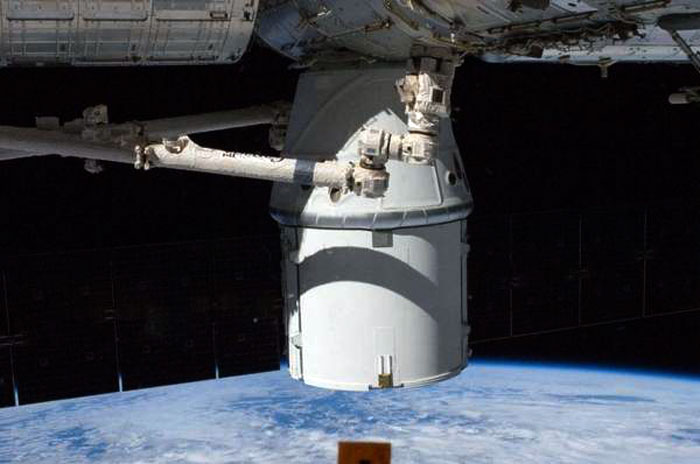-

SpaceX’s Dragon capsule on Sunday is set to end an 18-day stay at the International Space Station and return to Earth, NASA confirmed Wednesday.
Station mission managers unanimously gave a “go” for the departure to proceed despite a glitch that may make one of Dragon’s three flight computers unavailable.
The computer was knocked out of sync with the other two when it automatically reset itself without commands from the ground, but officials said the problem would not limit the spacecraft’s ability to fly home safely.
“By the flight rules, departure, unberth, splashdown and all of the deorbit activities can occur on two flight computers,” said NASA spokesman Kyle Herring.
SpaceX and NASA engineers were discussing whether to attempt to re-sync the third computer, which was reportedly working fine otherwise, or to leave the system the way it is.
Current schedules call for the station crew to pull the Dragon from its docking port with a robotic arm around 7 a.m., and release it into space before 9:30 a.m.
The Dragon would fire its thrusters to drop from orbit about five hours later, putting it on course for a 3:20 p.m. splashdown about 250 miles off the coast of Los Angeles.
Unlike with SpaceX’s demonstration flight back in May, there will be no live video of the splashdown.
SpaceX is expected to confirm the outcome as it happens. The Dragon delivered 882 pounds of crew supplies, equipment and science experiments, and is expected to return with about twice as much cargo.
As of Wednesday morning, the crew was nearly 90 percent complete with its unpacking and packing of the Dragon, with about five more crew hours needed to finish the job. The Dragon launched Oct. 7 from Cape Canaveral atop a Falcon 9 rocket and berthed at the station Oct. 10.
The mission is NASA’s first official commercial station resupply mission, and the first of at least 12 planned by Hawthorne, Calif.-based SpaceX under a $1.6 billion NASA contract.
Quelle: NASA
6173 Views
